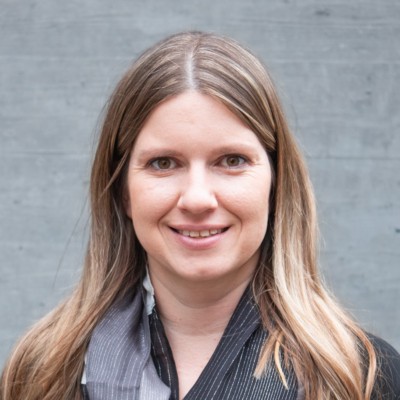Bettina Könighofer
Ass.Prof. Dipl.-Ing. Dr.techn. BScFormal Methods, Assistant Professor
Bettina Könighofer is assistant professor of Formal Methods and Machine Learning at Graz University of Technology. Bettina's research interests lie primarily in the area of reinforcement learning, formal verification, model checking, and runtime monitoring and enforcement.
Office room: IF020680 TUGRAZOnline_Visitenkarte
Research
My main research question is how to proof correctness for systems that are too complex to be formally verified.
We developed a concept for enforcing correctness during runtime. We developed a synthesis approach to automatically construct, from a given safety-critical specification, a SHIELD: a module that monitors the runtime behaviour of a system and interferes if and only if a critical property is violated. Thus, without ever analysing the software program or a reactive hardware, shielding guarantees that the output of the shielded system satisfies the specification.
We applied shields to reinforcement learning agents. For systems employing reinforcement learning, safety of decision-making, particularly during the exploration phase, is a major open challenge. A shield lets a learning agent do whatever it is doing and intervenes with its operation whenever absolutely needed to ensure safety. Thereby, shielding provides formal correctness guarantees for learned controllers, justifying their use in safety critical applications.
The two disciplines, formal methods and machine learning, should benefit from each other’s strengths in any possible way, and the focus of applying formal methods should not only be on guaranteeing safety, but also on ensuring performance. My goal is to further develop our shields such that they can be used by engineers to certificate their systems and can be applied to most demanding and challenging applications such as urban driving automation and intelligent medical devices.
See example projects:Teaching
Since 2015, I'm lecturing the bachelor course:
- Logic and Compatibility (lecture and practicals: summer term)
- Model Checking (lecture and practicals: winter term)
Publications
Shields for Safe Reinforcement Learning
Könighofer B., Bloem R., Jansen N., Junges S., Pranger S.
Communications of the ACM, Vol. 68(11), 2025
Fairness Shields: Safeguarding against Biased Decision Makers
Cano Cordoba F., Henzinger T., Könighofer B., Kueffner K., Mallik K.
Proceedings of the AAAI Conference on Artificial Intelligence
An Adaptive, Provable Correct Simplex Architecture
Maderbacher B., Schupp S., Bartocci E., Bloem R., Nickovic D., Könighofer B.
International Journal on Software Tools for Technology Transfer, 2025
Tools at the Frontiers of Quantitative Verification
Andriushchenko R., Bork A., Budde C., Češka M., Grover K., Hahn E., Hartmanns A., Israelsen B., Jansen N., Jeppson J., Junges S., Köhl M., Könighofer B., Křetínský J., Meggendorfer T., Parker D., Pranger S., Quatmann T., Ruijters E., Taylor L., Volk M., Weininger M., Zhang Z.
TOOLympics Challenge 2023 - Updates, Results, Successes of the Formal-Methods Competitions
Explainably Safe Reinforcement Learning
Rieder S., Pranger S., Chakraborty D., Křetínský J., Könighofer B.
39th Conference on Neural Information Processing Systems (NeurIPS 2025)
